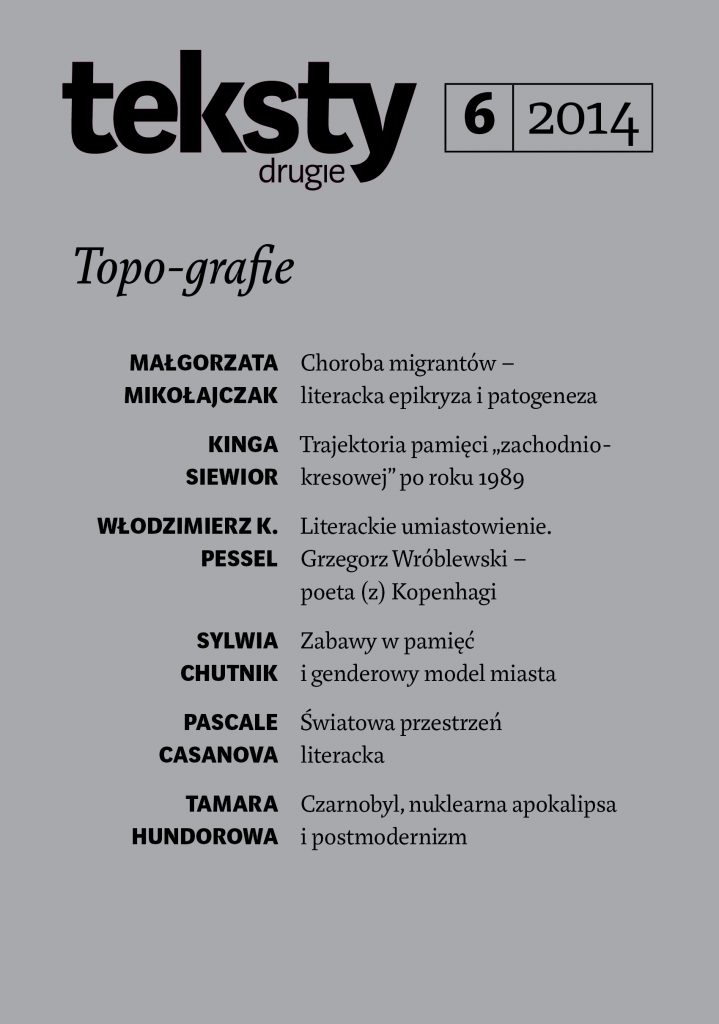Pałac Staszica jako heterotopia afektywna – refleksja humanistyczna w planowaniu przestrzennym
The Staszic Palace as an affective heterotopia – humanist thought in spatial planning
Author(s): Aleksandra WójtowiczSubject(s): Literary Texts
Published by: Instytut Badań Literackich Polskiej Akademii Nauk
Summary/Abstract: Wójtowicz proposes the new concept of affective heterotopia – a research category that builds on Michel Foucault’s typology as well as on works by Hentri Lefebvre, Derek Gregory, and Edward Soja. Wójtowicz’s analysis of the real heterotopic space and the dynamics of its transformations is enriched by another aspect – affectivity. The subject of study is the Staszic Palace in Warsaw, the seat of the Polish Academy of Sciences. At different times in history this place has functioned as a catalyst for activities that aimed to revolutionize the mental landscape of the collective. The literary works of Wacław Berent dedicated to this place open up a second research perspective. What is more, Wójtkowicz proposes a methodology based on collaboration between humanities scholars and architects – a collaboration that would invert earlier approaches where literary scholars tended to draw on other disciplines
Journal: Teksty Drugie
- Issue Year: 2014
- Issue No: 6
- Page Range: 305-320
- Page Count: 16

